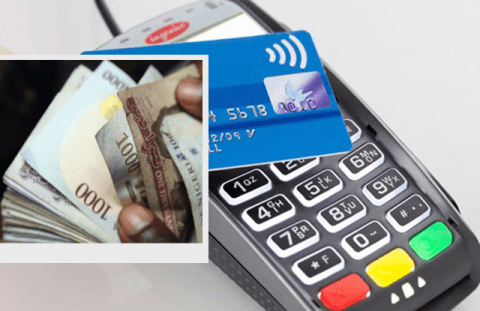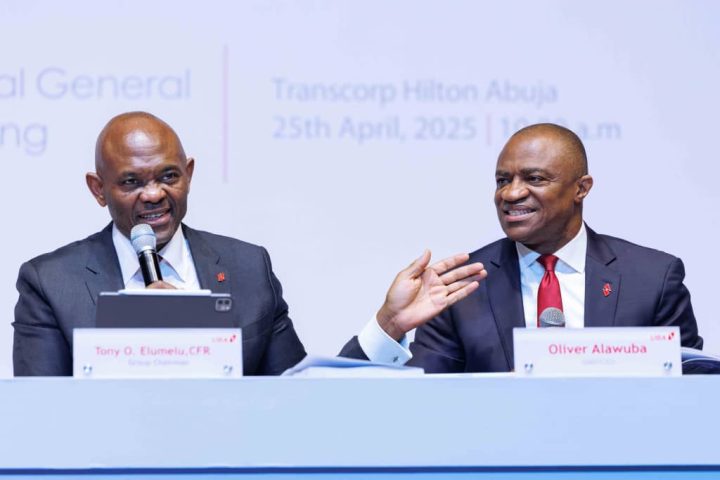In the wake of the directive by the Central Bank of Nigeria mandating banks to impose a 0.5% cybersecurity levy on transactions, attention has been drawn to the plethora of other levies Nigerians encounter during electronic transactions.
While the cybersecurity levy has garnered significant attention, it’s just one among several others that impact everyday financial transactions.
Join our WhatsApp ChannelA circular from the apex bank on Monday disclosed that the levy implementation would start two weeks from today.
The circular was directed to all commercial, merchant, non-interest, and payment service banks, among others.
The circular revealed that it was a follow-up on an earlier letter dated June 25, 2018 (Ref: BPS/DIR/GEN/CIR/05/008) and October 5, 2018 (Ref: BSD/DIR/GEN/LAB/11/023), respectively, on compliance with the Cybercrimes (Prohibition, Prevention, Etc.) Act 2015.
Let us look at the four additional levies affecting transactions ranging from N1,000 to N1,000,000.
Transfer Fee:
- N10: Transactions below N5,000
- N25: Transactions between N5,001 and N50,000
- N50: Transactions above N50,000
Stamp Duties:
- N50: Transactions between N10,000 and N10,000,000
Short Messaging Service (SMS):
- N4: Charged for each electronic transfer notification
READ ALSO: Why Cybersecurity levy Will Worsen Nigeria’s Hardship-NLC, TUC
Value Added Tax (VAT):
- N0.75: Charged on N10 transfer fee
- N1.875: Charged on the N25 transfer fee
- N3.75: Charged on N50 transfer fee
Cybersecurity Levy:
- N5 is charged on the transaction of N1,000
- N50 is charged on the transaction of N10,000
- N500 is charged on the transaction of N100,000
- N5,000 is charged on the transaction of N1,000,000
- N50,000 is charged on the transaction of N10,000,000
These levies, though often overlooked, cumulatively impact the cost of electronic transactions for Nigerians. While some exemptions exist, such as certain loan disbursements, salary payments, and intra-bank transfers, many routine transactions attract these additional charges. Consequently, consumers find themselves paying more than just the principal amount of their transactions.
Social media platforms have become avenues for Nigerians to voice their concerns regarding these multiple levies. Many express frustration over the increasing financial burden these charges impose, particularly amidst economic challenges. Critics argue that such levies hinder financial inclusion and exacerbate the cost of living for ordinary citizens.
As the debate surrounding transaction levies continues, stakeholders call for transparency and clarity regarding the purpose and utilization of these charges. There’s a growing demand for regulators to review existing policies to ensure they strike a balance between revenue generation and consumer protection.
The Nigeria Labour Congress (NLC), Trade Union Congress (TUC), and bank customers on Tuesday voiced their concerns, emphasizing the negative impact of the cybersecurity levy on ordinary Nigerians already grappling with economic challenges.
NLC President, Joe Ajaero, denounced the levy as “another burden on the shoulders of hardworking Nigerians,” expressing the union’s condemnation of the government’s decision. He highlighted the strain it would place on the populace amidst existing financial difficulties.
“This levy, to be implemented by deduction at the transaction origination, is yet another burden on the shoulders of hardworking Nigerians. This move, ostensibly aimed at bolstering cybersecurity measures, threatens to exacerbate the financial strain already faced by the populace.”
However, while the introduction of the cybersecurity levy has sparked discussions, it’s essential to recognize the broader landscape of transaction levies affecting Nigerians. As digital transactions become more prevalent, understanding and addressing the implications of these charges is crucial for promoting financial inclusion and transparency in Nigeria’s financial ecosystem.
Emmanuel Ochayi is a journalist. He is a graduate of the University of Lagos, School of first choice and the nations pride. Emmanuel is keen on exploring writing angles in different areas, including Business, climate change, politics, Education, and others.




















Follow Us